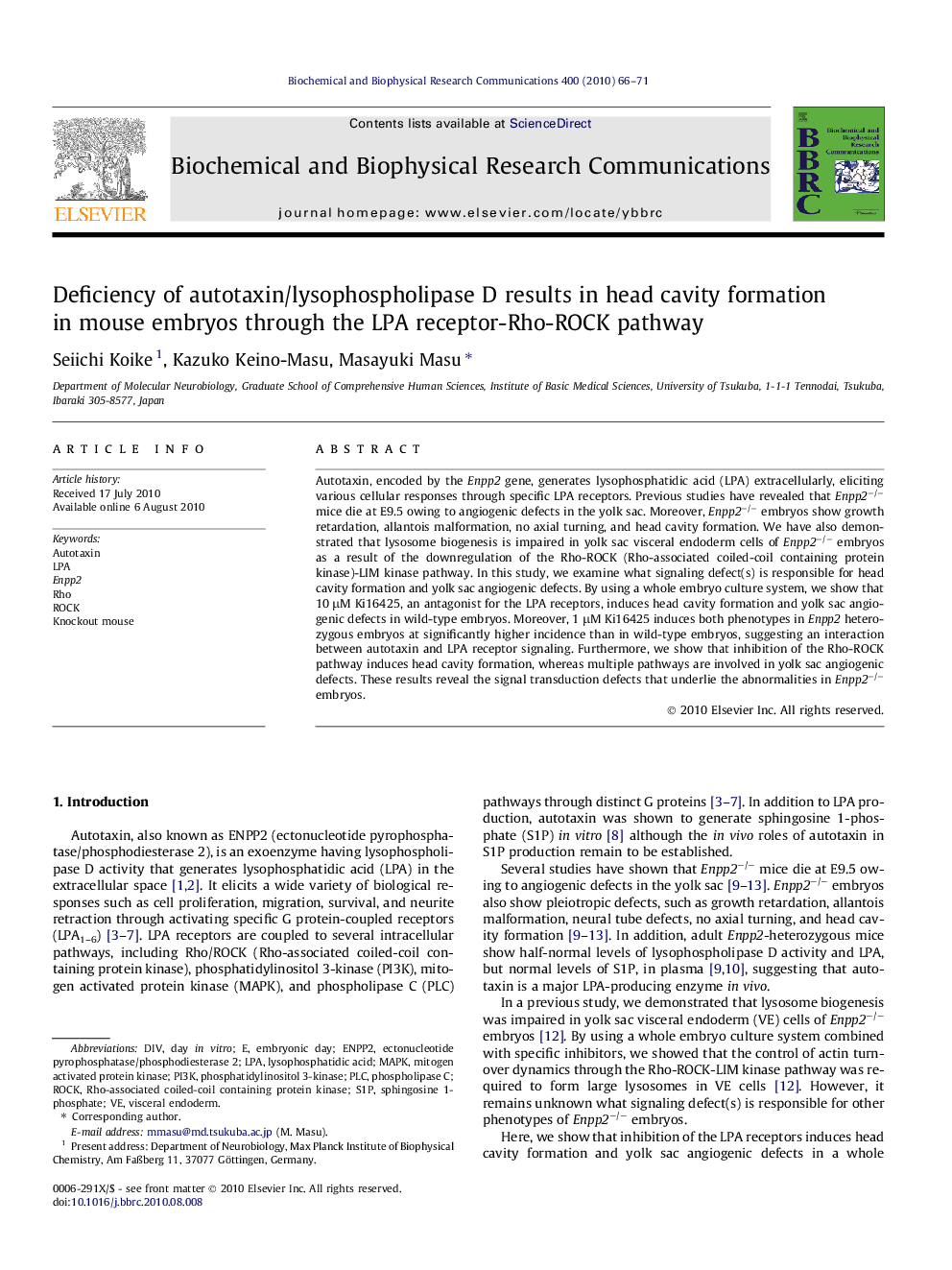| Article ID | Journal | Published Year | Pages | File Type |
|---|---|---|---|---|
| 1931426 | Biochemical and Biophysical Research Communications | 2010 | 6 Pages |
Autotaxin, encoded by the Enpp2 gene, generates lysophosphatidic acid (LPA) extracellularly, eliciting various cellular responses through specific LPA receptors. Previous studies have revealed that Enpp2−/− mice die at E9.5 owing to angiogenic defects in the yolk sac. Moreover, Enpp2−/− embryos show growth retardation, allantois malformation, no axial turning, and head cavity formation. We have also demonstrated that lysosome biogenesis is impaired in yolk sac visceral endoderm cells of Enpp2−/− embryos as a result of the downregulation of the Rho-ROCK (Rho-associated coiled-coil containing protein kinase)-LIM kinase pathway. In this study, we examine what signaling defect(s) is responsible for head cavity formation and yolk sac angiogenic defects. By using a whole embryo culture system, we show that 10 μM Ki16425, an antagonist for the LPA receptors, induces head cavity formation and yolk sac angiogenic defects in wild-type embryos. Moreover, 1 μM Ki16425 induces both phenotypes in Enpp2 heterozygous embryos at significantly higher incidence than in wild-type embryos, suggesting an interaction between autotaxin and LPA receptor signaling. Furthermore, we show that inhibition of the Rho-ROCK pathway induces head cavity formation, whereas multiple pathways are involved in yolk sac angiogenic defects. These results reveal the signal transduction defects that underlie the abnormalities in Enpp2−/− embryos.
Research highlights► Autotaxin deficiency leads to head cavity formation and yolk sac angiogenic defects. ► Blockade of LPA receptors induces head cavity formation in cultured mouse embryos. ► Blockade of Rho/ROCK induces head cavity formation in cultured mouse embryos. ► Blockade of actin polymerization induces head cavity formation in mouse embryos. ► Blockade of LPA receptors induces yolk sac angiogenic defects in mouse embryos.
